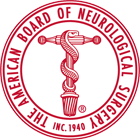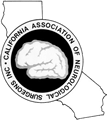A 36-year old woman with one year history of headache and hypertension presented with diplopia, progressive headache, nausea and vomiting and loss of consciousness. MRI scan of her brain showed a tectal tumor obstructing the cerebral aqueduct and hydrocephalus. The Patient underwent stereotactic endoscopic third ventriculostomy followed by gross total resection of the tectal tumor which was found to be anaplastic astrocytoma. She was discharged from the hospital neurologically intact and shunt independent.













